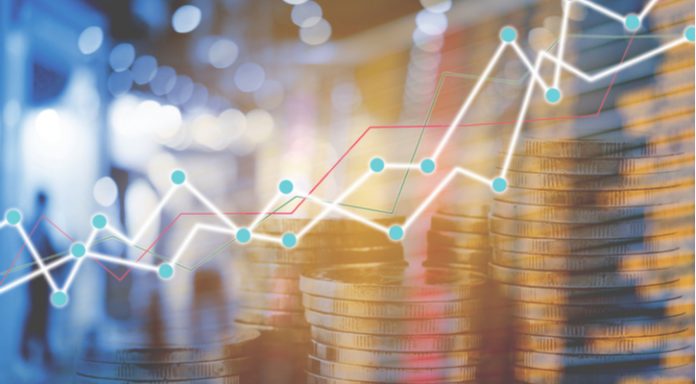The pound rallied against the euro as Parliament voted in favour of avoiding a no deal Brexit. The pound euro exchange rate surged to a high of €1.1803, a level which was last seen in May 1917. The pound pulled back in early trade on Thursday.
| What do these figures mean? |
|---|
|
When measuring the value of a pair of currencies, one set equals 1 unit and the other shows the current equivalent. As the market moves, the amount will vary from minute to minute. For example, it could be written: 1 GBP = 1.13990 EUR Here, £1 is equivalent to approximately €1.14. This specifically measures the pound’s worth against the euro. If the euro amount increases in this pairing, it’s positive for the pound. Or, if you were looking at it the other way around: 1 EUR = 0.87271 GBP In this example, €1 is equivalent to approximately £0.87. This measures the euro’s worth versus the British pound. If the sterling number gets larger, it’s good news for the euro. |
The pound was the best performing currency among the top 10 most traded currencies, or the G10, on Wednesday. Sterling soared after ministers voted to reject the idea of a disorderly Brexit. The House of Commons has ruled out the most damaging scenario to UK businesses and the UK economy and this is supporting the pound.
| Why is a “soft” Brexit better for sterling than a “hard” Brexit? |
|---|
| A soft Brexit implies anything less than UK’s complete withdrawal from the EU. For example, it could mean the UK retains some form of membership to the European Union single market in exchange for some free movement of people, i.e. immigration. This is considered more positive than a “hard” Brexit, which is a full severance from the EU. The reason “soft” is considered more pound-friendly is because the economic impact would be lower. If there is less negative impact on the economy, foreign investors will continue to invest in the UK. As investment requires local currency, this increased demand for the pound then boosts its value. |
Investors will now look ahead to the final Brexit vote in this series. Today ministers will vote on whether to delay Article 50. Currently the UK is due to leave the UK on 29th March. In order to push this date back all 27 countries in the EU must agree.
Whilst a short extension would prevent the UK crashing out of the EU without a deal, it would also extend uncertainty for business. A longer extension could allow the renegotiation of the Brexit deal or even a second referendum.
Theresa May will also bring her vote back to Parliament for a third attempt next week.
German Inflation Data In Focus
Demand for the euro was broadly flat in the previous session despite some encouraging data for the region. Eurozone industrial production showed signs of stabilising in January despite weak production in Germany. Output for the region increased 1.4% in January, from December. The figure was an improvement on the 1% increase that analysts had forecast. It was also a vast improvement on the -0.9% decline experience in December.
The data showed that Spain, Netherlands and France were strong performers in the sector. However, Germany, the largest economy in the experience a dramatic 3.4% decline in output. The data offers some reassurances that the slowdown across the eurozone is not worsening. But it also highlights growing concerns over Germany.
Today investors will keep a close eye on German inflation data. Analysts forecast that the consumer price index will remain steady in February at 1.6% year on year. Any sign of inflation weakness could pull the euro lower. The European Central Bank are in no rush raise interest rates. Weak inflation would give the central bank another reason to push a hike back further.
| Why do raised interest rates boost a currency’s value? |
|---|
| Interest rates are key to understanding exchange rate movements. Those who have large sums of money to invest want the highest return on their investments. Higher interest rate environments tend to offer higher yields. So, if the interest rate or at least the interest rate expectation of a country is relatively higher compared to another, then it attracts more foreign capital investment. Large corporations and investors need local currency to invest. More local currency used then boosts the demand of that currency, pushing the value higher. |
This publication is provided for general information purposes only and is not intended to cover every aspect of the topics with which it deals. It is not intended to amount to advice on which you should rely. You must obtain professional or specialist advice before taking, or refraining from, any action on the basis of the content in this publication. The information in this publication does not constitute legal, tax or other professional advice from TransferWise Inc., Currency Live or its affiliates. Prior results do not guarantee a similar outcome. We make no representations, warranties or guarantees, whether express or implied, that the content in the publication is accurate, complete or up to date. Consult our risk warning page for more details.
This article was initially published on TransferWise.com from the same author. The content at Currency Live is the sole opinion of the authors and in no way reflects the views of TransferWise Inc.





